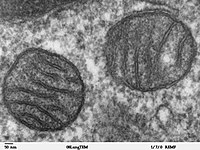
Mammalian‐enabled (MENA) protein enhances oncogenic potential and cancer stem cell‐like phenotype in hepatocellular carcinoma cells
Sign Up to like & getrecommendations! Published in 2017 at "FEBS Open Bio"
DOI: 10.1002/2211-5463.12254
Abstract: Mammalian‐enabled (MENA) protein is an actin‐regulatory protein that influences cell motility and adhesion. It is known to play a role in tumorigenicity of hepatocellular carcinoma (HCC) but the underlying molecular mechanism remains unknown. This study… read more here.
Keywords: protein; hcc; hcc cells; stem cell ... See more keywords

Crocetin Imparts Antiproliferative Activity via Inhibiting STAT3 Signaling in Hepatocellular Carcinoma.
Sign Up to like & getrecommendations! Published in 2021 at "IUBMB life"
DOI: 10.1002/iub.2555
Abstract: STAT3 is a key oncogenic transcription factor, often overactivated in several human cancers including hepatocellular carcinoma (HCC). STAT3 modulates the expression of genes that are connected with cell proliferation, antiapoptosis, metastasis, angiogenesis, immune evasion in… read more here.
Keywords: hepatocellular carcinoma; hcc cells; stat3; crocetin ... See more keywords

W436, a novel SMART derivative, exhibits anti‐hepatocarcinoma activity by inducing apoptosis and G2/M cell cycle arrest in vitro and in vivo and induces protective autophagy
Sign Up to like & getrecommendations! Published in 2021 at "Journal of Biochemical and Molecular Toxicology"
DOI: 10.1002/jbt.22831
Abstract: Hepatocellular carcinoma (HCC) is considered one of the most common primary liver cancers and the second leading cause of cancer‐associated mortality around the world annually. Therefore, it is urgent to develop novel drugs for HCC… read more here.
Keywords: cycle arrest; hcc cells; cell cycle; w436 ... See more keywords

LncRNA CASC2 inhibited the viability and induced the apoptosis of hepatocellular carcinoma cells through regulating miR‐24‐3p
Sign Up to like & getrecommendations! Published in 2018 at "Journal of Cellular Biochemistry"
DOI: 10.1002/jcb.26479
Abstract: Cancer susceptibility candidate 2 (CASC2), a recently discovered long non‐coding RNA (lncRNA), was confirmed to play numerous roles in several human cancers. However, the involvement and concrete mechanism of CASC2 in hepatocellular carcinoma (HCC) still… read more here.
Keywords: hepatocellular carcinoma; hcc; viability; mir ... See more keywords

LncRNA SNHG15 promotes hepatocellular carcinoma progression by sponging miR‐141‐3p
Sign Up to like & getrecommendations! Published in 2019 at "Journal of Cellular Biochemistry"
DOI: 10.1002/jcb.29283
Abstract: Small nucleolar RNA host gene 15 (SNHG15) is a long noncoding RNA (lncRNA), which promotes progression of multiple cancers. Its specific function in hepatocellular carcinoma (HCC), however, is uncertain. The aims of our study were,… read more here.
Keywords: hepatocellular carcinoma; hcc cells; mir 141; snhg15 ... See more keywords

Epithelial to mesenchymal transition is involved in ethanol promoted hepatocellular carcinoma cells metastasis and stemness
Sign Up to like & getrecommendations! Published in 2018 at "Molecular Carcinogenesis"
DOI: 10.1002/mc.22850
Abstract: Hepatocellular Carcinoma (HCC) is a malignant tumor with high rate of relapse and metastasis. Ethanol is a well‐known risk factor for HCC; it promotes the progression and aggressiveness of HCC. However, the underlying mechanism remains… read more here.
Keywords: hepatocellular carcinoma; hcc; ethanol exposure; hcc cells ... See more keywords

Ubiquitin ligase MARCH8 promotes the malignant progression of hepatocellular carcinoma through PTEN ubiquitination and degradation.
Sign Up to like & getrecommendations! Published in 2023 at "Molecular carcinogenesis"
DOI: 10.1002/mc.23546
Abstract: Membrane-associated ring-CH-type finger 8 (MARCH8) belongs to the MARCH family of membrane-bound E3 ubiquitin ligases. The N-terminus of MARCH family members contains the C4HC3 RING-finger domain, which can bind to E2 ubiquitin-conjugating enzymes, ubiquitinate substrate… read more here.
Keywords: hepatocellular carcinoma; hcc cells; malignant progression; hcc ... See more keywords

The nature compound dehydrocrenatidine exerts potent antihepatocellular carcinoma by destroying mitochondrial complexes in vitro and in vivo
Sign Up to like & getrecommendations! Published in 2022 at "Phytotherapy Research"
DOI: 10.1002/ptr.7398
Abstract: Cumulative evidence indicates that mitochondria dysfunction plays an important role in tumour treatment. Given the limited efficacy and toxicity of current mitochondria‐targeted drugs, research into effective mitochondria‐targeted anticancer agents remains an irresistible general trend. In… read more here.
Keywords: vitro vivo; compound; mitochondrial complexes; dec ... See more keywords

Total flavonoids of Radix Tetrastigma suppress inflammation-related hepatocellular carcinoma cell metastasis
Sign Up to like & getrecommendations! Published in 2021 at "Molecular Genetics and Genomics"
DOI: 10.1007/s00438-020-01759-6
Abstract: This study aimed to investigate the effects of the total flavonoids of Radix Tetrastigma (RTF) on inflammation-related hepatocellular carcinoma (HCC) development. Extracted RTF was diluted to different concentrations for subsequent experiments. HCC cells were cotreated… read more here.
Keywords: inflammation; hcc cells; flavonoids radix; total flavonoids ... See more keywords

FOXA2 inhibits doxorubicin-induced apoptosis via transcriptionally activating HBP rate-limiting enzyme GFPT1 in HCC cells.
Sign Up to like & getrecommendations! Published in 2021 at "Journal of physiology and biochemistry"
DOI: 10.1007/s13105-021-00829-6
Abstract: Apoptosis plays an important role in both carcinogenesis and cancer treatment. Understanding the mechanisms through which resistance to apoptosis occurs in cancer cells has huge implications for cancer treatment. Although pieces of evidence have shown… read more here.
Keywords: foxa2; apoptosis; induced apoptosis; hcc cells ... See more keywords

Peroxiredoxin 4 suppresses anoikis and augments growth and metastasis of hepatocellular carcinoma cells through the β-catenin/ID2 pathway
Sign Up to like & getrecommendations! Published in 2019 at "Cellular Oncology"
DOI: 10.1007/s13402-019-00460-0
Abstract: Peroxiredoxin 4 (PRDX4) has been reported to play a dual role in the progression of hepatocellular carcinoma (HCC). As yet, however, the underlying molecular mechanism has not been fully elucidated. We examined the effects of… read more here.
Keywords: prdx4; hcc cells; anchorage independent; metastasis ... See more keywords